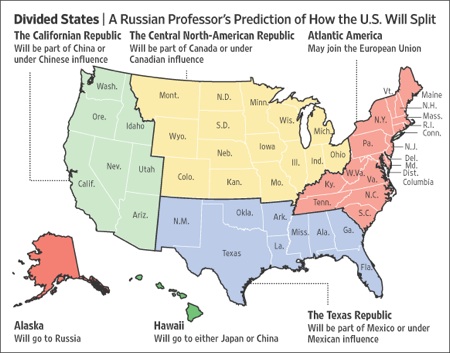
Pretty good show on PBS a couple of nights ago about the war in Afghanistan. An embedded reporting team moved around Helmand province in Afghanistan with Echo Company, a Marine outfit patrolling an area dominated by the Taliban. Spliced into the hour-long show were excerpts from speeches from David Petraeus and lots of think-tank talking heads. I came away with these thoughts:
1. Watching Petraeus's PowerPoint-aided speech to some think tank institute or other (one of those focusing on defense), I was struck by how similar in style and content a war speech is these days to the language of the business consultant. "Missions," "objectives," "modalities," "partnering with," etc. It's a real industry, war-making in this country, with a huge constituency. A lot of people in government and quasi-government would be out of work if we stopped fighting wars. A war is a business venture with purposes far removed from the putative reason for the conflict; for example, no one is very convincing that the Afghan War, now in its 9th year, is really about 9/11 anymore. When you think about it, how could it be? A certain obeisance is paid to this original rationale, but the main purpose of the war is the war itself, and all the careers and government contracts connected to it. This situation provides tremendous institutional momentum.
2. The show opens with a Marine commander giving his version of Henry V's St. Crispin's Day speech. It's not a very good speech. He tells the Marines that 50 years from now their grandchildren will ask them about what happened that summer in Afghanistan. With all due respect to the terrible danger the grunts face every day over there, I kind of doubt this. 50 years from now the Afghanistan War will be in the same category as the Panama invasion or the great conquest of Grenada. Anyway, given the awful, inarticulate nature of modern speech patterns in America, wouldn't it be better just to quote the Bard himself?
This story shall the good man teach his son;And Crispin Crispian shall ne'er go by,From this day to the ending of the world,But we in it shall be remembered-We few, we happy few, we band of brothers;For he to-day that sheds his blood with meShall be my brother; be he ne'er so vile,This day shall gentle his condition;And gentlemen in England now-a-bedShall think themselves accurs'd they were not here,And hold their manhoods cheap whiles any speaksThat fought with us upon Saint Crispin's day.
Clearly this is what the commander was going for, and it didn't work. I would say, however, that Henry V's decision to invade France was beset by a problem similar to the Afghan invasion: Henry's war didn't make any sense either, but with Shakespeare writing his material, it seemed more rational.
2. Everyone in Afghanistan, except the U.S. military, is interested primarily in one thing: the money you can make with opium poppies. The Taliban, Karzai's government and the native tribes are all up to their eyeballs in heroin production. Karzai's chief aide is a narco-dealer, for example, or is widely viewed as one by the populace. The U.S. military just looks the other way: they can't win hearts and minds by wiping out the lucrative poppy business, so they leave it alone.
3. Pakistan is a real mess. No doubt this is the real reason we're in Afghanistan - to keep an eye on the Muslims with the nukes. The ISI (Pakistan's security apparatus) is highly supportive of Afghanistan's Taliban, which means that a lot of the billions in aid we pay to Pakistan probably finds its way one way or another into the hands of our nominal enemy. The Pakistanis, by and large, seem to hate us, so the idea of a direct solution to our problem, simply garrisoning soldiers in Pakistan, is a non-starter, as the management consultants/generals might say. So we have to mess around with a war next door in order to keep our forces ready to...? Hard to say.
4. Karzai is hugely corrupt and probably plays the Taliban off against us and vice versa.
The grunts of Echo Company patrol the primitive villages of southern Afghanistan and get shot at, and blown up, by a largely unseen enemy who avoid direct confrontation. It really looks like such a war could go on forever. The Taliban aren't going to leave and the local, non-hostile population seems largely indifferent to their presence so long as they're allowed to grow opium poppies. Karzai rules Kabul, but beyond that it's all sort of the Wild West.
I suppose the only real question is whether our presence in Afghanistan helps or hinders stability in Pakistan. Those who want us out say it "destabilizes" Pakistan, those who say we "must win" claim our presence is necessary. McChrystal (who spends a lot of time on-air during the show) of course believes he needs a lot more troops in order to get the job done. I imagine he'll get most of them because Petraeus demonstrated in Iraq that a fractional increase in the number of American troops (the "surge") does something, and I don't think Obama wants to take a chance on varying from this template even if the two situations are not at all analogous. The war may fail, but Obama will want to fail in a way that is acceptable to the War Industry, and in America Surges 'R Us. If you go rogue and do something weird, like withdraw completely, you take a huge gamble. You change the "brand." In later reconstructions of your failure, the analysis will be simplified so that Fox News and the Republicans will yell that Obama had the compelling example of The Surge to guide him, but made some fancy argument that Iraq was not Afghanistan and tried something else. That doesn't play in America. Way too complicated.

![]()

![]()
![]()

